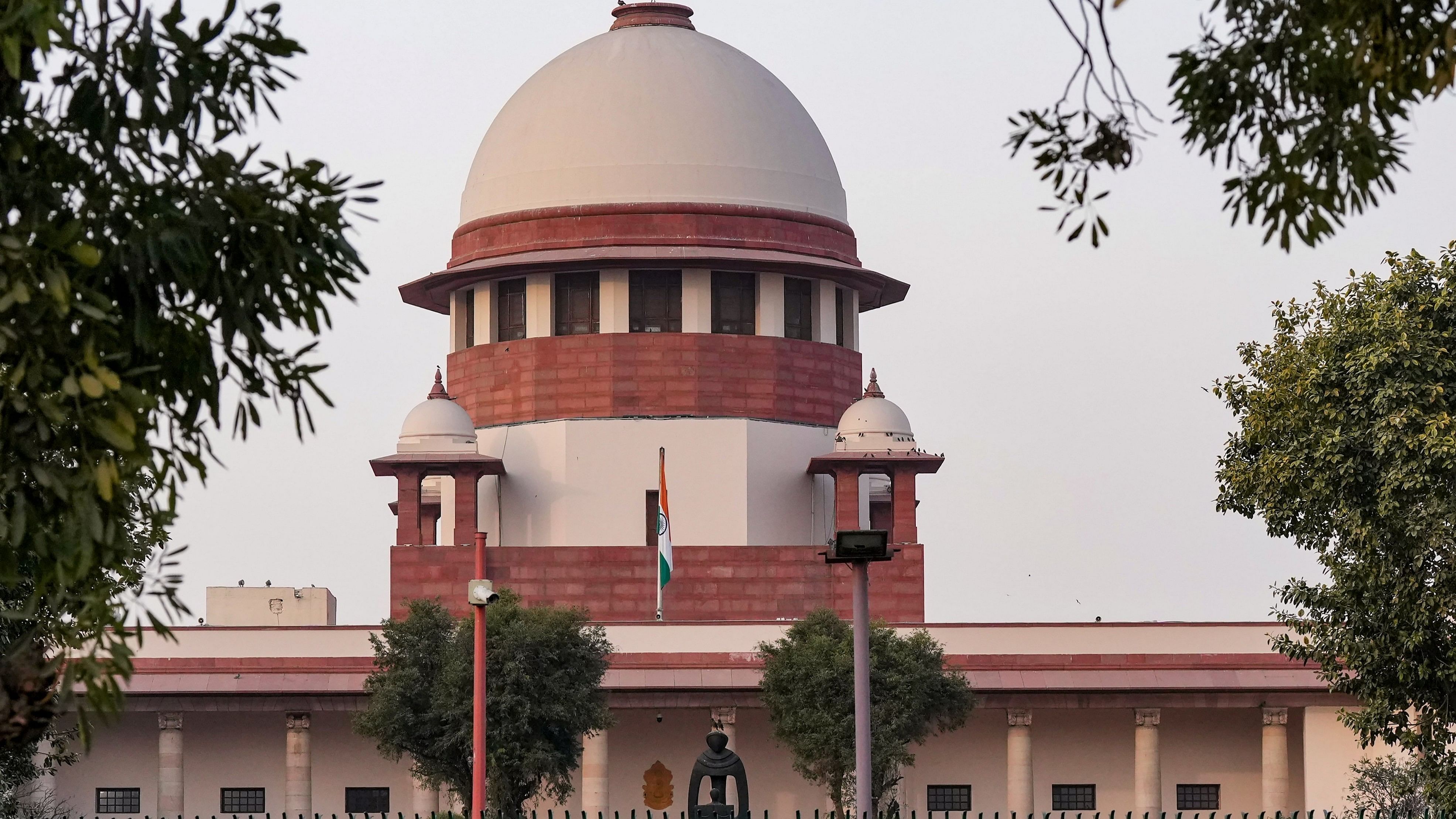
The Supreme Court of India.
Credit: PTI File Photo
New Delhi: The Supreme Court has declared Khalsa University (Repeal) Act, 2017 as unconstitutional, which sought to close down a 2016 private university, set up in terms of the Punjab government's 2010 policy, by then Chief Minister Amrinder Singh in order to “protect the heritage character of Khalsa College” established in 1892 in Amritsar.
A bench of Justices B R Gavai and K V Vishwanathan said the very foundation of 2017 Act that Khalsa University would shadow and damage the character and pristine glory of Khalsa College which has, over a period of time, become a significant icon of Khalsa heritage, is on a non-existent basis.
In the case, the bench found that the Act singled out the Khalsa University amongst 16 private Universities in the State and no reasonable classification has been pointed out to discriminate with it against the other private Universities.
"The Act therefore would be discriminatory and violative of Article 14 of the Constitution," the bench said in its judgment on October 3, 2024.
It said the only reasoning as could be found in the Act is that the Khalsa College, Amritsar has, over a period of time, become a significant icon of Khalsa Heritage and the appellant was likely to shadow and damage its character and pristine glory.
The court noted a specific statement, on other hand, has been made by the appellants Khalsa University that the Khalsa College would not be affiliated with it.
The court also found the maps have been placed on record which show the placement of Khalsa College in the campus along with the other institutions. The map would clearly reveal that it is only the Khalsa College established in 1892 which is a heritage one. All other buildings have been subsequently constructed having no resemblance with the Khalsa College building, the court said.
"The Act, which was enacted with a purpose which was non-existent, would fall under the ambit of manifest arbitrariness and would therefore be violative of Article 14 of the Constitution," the bench said.
The court, however, said though a legislation affecting a single entity or a single undertaking or a single person would be permissible in law, it must be on the basis of reasonable classification having nexus with the object to be achieved.
"There should be a reasonable differentia on the basis of which a person, entity or undertaking is sought to be singled out from the rest of the group," the bench said.
Undisputedly, the Act was a single entity legislation repealing the 2016 Act by which the Khalsa University was established, it noted.
The court also noted no material is placed on record as to what was the compelling and emergent situation so as to enact a law which could affect the Khalsa University.
"No material is placed on record to show that there were any discussions prior to the Act being passed or as to what material was placed and taken into consideration by the competent legislature," the bench said.
The court allowed the appeal filed by the Khalsa University against the High Court's 2017 order and the status quo ordered on May 29, 2017 would stand restored.
Among other grounds, the appellant contended Captain Amarinder Singh had made public statements that he was “touchy” about the Khalsa College, that he would not permit the ruling party to tinker with its status and that, after he comes to power, he will reverse the decision.
Immediately after he became the Chief Minister of Punjab in 2017, the Act was passed to repeal the private university.
The appellant said under the 2010 Policy, 16 Universities were established, however, it was only the Khalsa University which was picked up and abolished, which was patently arbitrary, discriminatory and violative of Article 14 of the Constitution.
